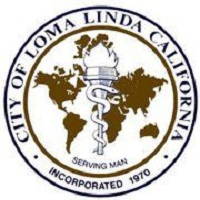
City of Loma Linda
Loma Linda ("Beautiful Hill"), originally known as "Mound City," has a history of being a health-conscious community. The Seventh-day Adventist Church purchased the Loma Linda Resort hotel from a group of businessmen and physicians from Los Angeles hospitals and converted it into the Loma Linda Sanitarium in 1905. The Sanitarium eventually became a full service medical facility and medical college, the forerunners of the Loma Linda University and Medical Center. Loma Linda has been a national center of health and wellness research for decades. The tradition of promoting food health has continued over the years. In 1993, the Loma Linda became the first “smoke-free” city in San Bernardino County.